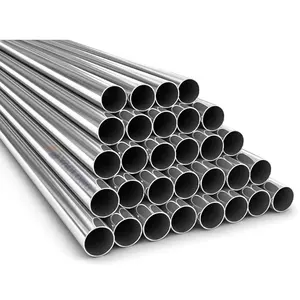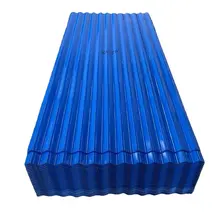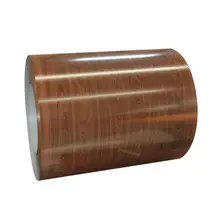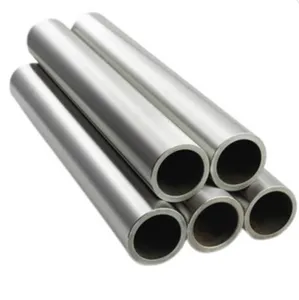Metal pipes provide rugged durability and versatility across structural, mechanical, and industrial piping applications. Different materials used for metal pipes, like steel, aluminum, and iron, formed into hollow pipe structures effectively withstand pressure, temperature, corrosion, and extensive use. Metal's strength also allows the fabricating of pipes in diverse diameters and functional shapes. Metal pipes reliably move and protect various elements, from housing wiring to water transport.
Features of metal pipes
With unrivaled strength, extreme durability, and sizing diversity, metal pipes make for durable components for safely transferring liquids, gases, wiring, and more. Metal's innate material strength enables the fabricating of sturdy large metal pipes to resist force and deterioration from its contents. Thick-walled steel metal pipes endure years of heavy flows and extreme pressures in municipal water systems. Durable aluminum irrigation in metal pipes withstand the extreme temperatures caused by the sun, rain, snow, and other weather elements. Using metal pipes for structures further promotes public safety because of its durability.
Types of metal pipes
Metal pipes come in a vast range of sizes. They are classified as big metal pipes or small metal pipes, depending on overall length, width, and height. More extensive types of metal pipes serve high-volume flow in commercial industries. Thinner tubes of metal pipes can be used to route cables behind walls, while varied bore sizes are more flexible for cramped spaces. Standard sizing of metal pipes facilitates the joining of different types of pipes to create unique installations.
Depending on the contents and environment, certain metals provide excellent corrosion immunity. Stainless steel resists rust and acids typically used in most industrial settings. Aluminum's oxide coat deters corrosion and oxidation damage outside or underground. Specialty alloys on galvanized metal pipes combat potential saltwater decay. Durable metal pipes protect against internal and external corrosion threats that might damage or poison the contents of the pipes. Easily formed into rounds, tubes, squares, and custom profiles, metal pipes can be designed into specialized shapes for varying purposes. Fittings like elbows, tees, and reducers join metal pipes into intricate distribution networks. Formed metal pipes adapt to challenging spaces and custom requirements.
Steel metal pipes provide durability and strength for proper structural integrity of an area. Lightweight aluminum metal pipes allow for easier installation for onsite workers. Ductile iron metal pipes withstand strong impact and resist future interior decay. Each type of metal pipe maximizes innate material strengths for its intended functions. The optimal metal matches performance needs.

































 浙公网安备 33010002000092号
浙公网安备 33010002000092号 浙B2-20120091-4
浙B2-20120091-4